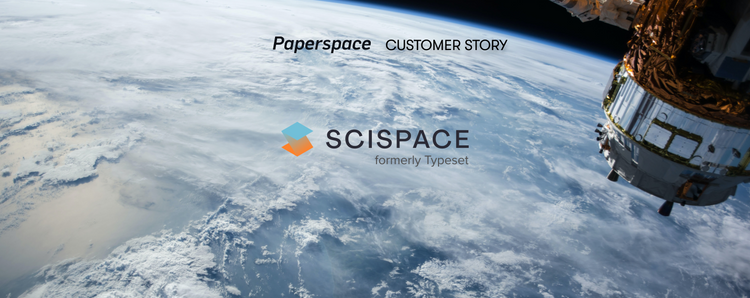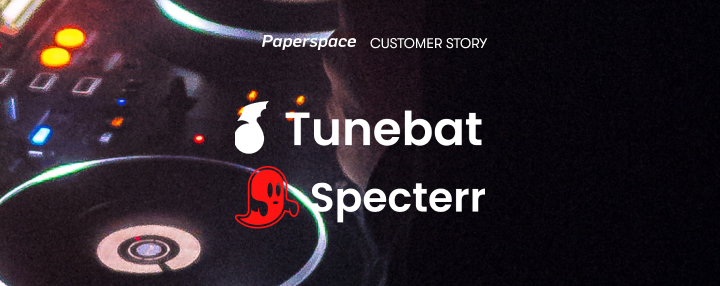We were first introduced to Demetrios Brinkmann more than a year ago when he told us he was assembling a new community on the web for professionals in the machine learning world to talk about MLOps.
MLOps is still a new concept for many but when we first met Demetrios the term was hardly in vogue at all -- which is to say O’Reilly hadn’t yet started publishing books on MLOps, the first MLOps conference hadn’t yet happened, and there was barely any awareness of MLOps as a keyword in people’s minds or search histories.
That’s a reality that has rapidly vanished.
MLOps has proliferated through the ML world and is now hitting mainstream enterprise adoption and interest. Esteemed players like Deloitte, Forbes, and Google are weighing in on the emerging industry, a new slate of conference topic tracks and job postings are springing up daily, and new courseware is adapting to the shifting demand in the industry. Prized positions are opening left and right for the system architects who can turn a company’s ML development pipeline into a Swiss railway network.
MLOps.community, the group that Brinkmann founded, is today perhaps the center of the MLOps universe. Brinkmann and his team have curated a vibrant community of professionals in the ML space trying to define the best philosophies, tools, and resources to bring determinism to ML development – and much of the conversation happens in the open in the slack group that anyone is free to join.
We were super excited to talk with Demetrios about the first year-plus of the MLOps community. We wanted to know not only what trends he was observing and which groups he was hearing from the most, but also how a US expat living in Northern Spain found his way into building a 5000-strong member community.
We also wanted to talk about -- what else? -- MLOps! Let’s dive in.
Paperspace. It’s no simple feat to attract a community of nearly 5,000 ML people to a community -- yet you’ve done it from scratch while layering in weekly meetups, newsletters, podcast coffee sessions, office hours, Women of MLOps meetings, a bi-weekly reading club, quarterly hackathon cohorts, and more. How have you managed to keep such an action-packed agenda for the community?
Brinkmann. We started with one core initiative and have since expanded as the community and the people willing to get involved also expanded. People would come to me and say, “Hey what about starting a Q&A channel?” Or “What about a Women of MLOps channel?” 90% of the new initiatives have turned out to be great ideas and we’ve been able to invest time and energy into finding leads to bring these initiatives to life.
A few projects didn’t get off the ground until a year after starting them like Office Hours. We had always wanted to have a set time in the week where people could gather and talk informally about what they were working on but it wasn’t until recently that we’ve been able to make it a regular occurrence.
Paperspace. Can you tell us about starting the community? Was there a point at which you felt like you “got it” that MLOps was going to be a thing and thought other people would feel similarly?
Brinkmann. The MLOps community started with just me posting things in Slack to three other people. After some time there were a few more of us, and now there are a lot more of us. But I remember a feedback survey that said something like: “This isn’t a community yet this is just Demetrios’ curated news” -- which still makes me laugh.
Early on we didn’t have the momentum that you see today where so many great questions are being asked and experts from all over the industry are weighing in and generating so many great discussions and debates.
So I’m not sure it was a sudden change but at some point this went from being my curated news aggregator to an actual community. The “MLOps Questions Answered” channel helped a lot. All of a sudden the expertise of the community became apparent -- and it was instantly clear that we had a lot of really talented people who wanted to share what they knew.
One sign that we were on to something was when I started getting random notes from people on LinkedIn or in the community Slack saying how much they enjoyed what was happening. I also started to get an influx of people wanting to meet with me or reaching out with requests. That was a sign that people were taking notice of this thing happening in our little corner of the internet.
Paperspace. Is it a requirement these days to reference “The Paper” when talking about MLOps? Do you think The Paper is symbolically a good founding document for the MLOps industry? Do you think it should be valued by your community?
Brinkmann. I would say one of the highlights of our podcasts is the moment when we were able to interview one of the lead authors of the paper, D Scully. He is a wealth of information and doesn’t do many “media appearances” -- so it was incredibly humbling that he sat down to talk with us.
As for the paper, it has become a bit of a meme due to every article or conference talk referencing it for the past few years. I think we all understand and see the value in the points that D. made and now we are looking for ways to truly combat some of the pains referenced in the paper.
Paperspace. That’s so cool. Do you have any other favorite interviews or interactions that come to mind?
Brinkmann. I learn something from every guest. There are certain people that I end up quoting on a regular bases and I ended up writing a blog post about my top 9 conversations thus far. The short list are the conversations with Todd Underwood, Head SRE of ML for Google, Luigi Patruno, Founder of ML in Production, and Elizabeth Chabot, Strategy Data Manager at Deloitte.
Paperspace. What can you say about the members who join the community? Are there any traits that you can think of that point to an interest in MLOps in terms of company size, job title or function, and so on?
Brinkmann. We have a bit of everything from the data scientist who wants to learn more engineering skills, to the MLE looking to perfect their craft, to the DevOps person transitioning over to MLOps.
It’s difficult to generalize since we are getting so big but one thing I would say is that the vast majority of us are practitioners -- people who are knee-deep in this stuff on a daily basis.
I think that’s also one of the reasons we have so many good discussions -- because we’re all trying to solve some problems that we have in our professional day-to-day lives.
Paperspace. How do you know which direction to take the community? Do your members sort of tell you where they’d like you to steer things?
Brinkmann. I make sure to check-in with folks via feedback forms at least once every six months. This helps me feel the pulse of the community and where it wants to go.
We have so many initiatives and possibilities that it’s sometimes hard to know which ones to prioritize. Ultimately we want to do what’s best for the community so we really value this constant communication. Also since we are a distributed community we welcome anyone to spearhead a project if they have the drive to do so.
Paperspace. What question are you getting the most these days from folks interested in MLOps? Do you think there’s enough info out there for people to start getting involved now?
Brinkmann. It’s rare to see a duplicate question from the community (unless it's about Jupyter notebooks) -- I think this speaks to the depth of the community at large. Everyone is working on their own difficult challenges at their respective companies. There are infinite ways of architecting your ML systems and because of that we are never short on discussion points. Folks often want to get into very specific problems and pains in the MLOps ecosystem. That’s part of the reason it’s so fun!
Paperspace. Are there any upcoming initiatives you’re especially excited about?
Brinkmann. There are a few – the Engineering Labs and the MLOps Stacks projects are the first ones that come to mind.
Engineering Labs are cohorts that launch every couple months and give participants an opportunity to get hands-on experience with MLOps problems. We break everyone into teams and give them a problem to solve and a deadline and let them loose! At the end of the cohort we ask everyone to show their work and we give out different prizes for the teams that a panel of judges deems the best!
The MLOps Stacks project is an initiative to make it easy to test different open source MLOps tooling stacks. The group is adding new stacks weekly and it's all terraformed into your environment.
Paperspace. What an amazing community and set of initiatives. We've loved watching the community grow and participating alongside so much great subject matter expertise. How would you recommend readers of this blog get involved and help grow MLOps as a community and a software engineering practice?
Brinkmann. The first thing would be to join the Slack group via https://mlops.community/. Once you join please reach out to me (@Demetrios) and let me know if you have any initiatives you're interested in joining or leading. There is never a lack of things to do and we’re always looking for new leaders!
If you are getting started with the MLOps Community, head over to https://mlops.community/ and join the Slack group. You can also follow the community on Twitter @mlopscommunity and on YouTube to see all the latest expert-driven sessions.











